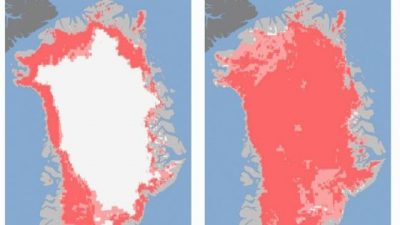 In the coming decades, natural disasters could costs Alexandria, Casablanca, and Tunis $1 billion each.
In the coming decades, natural disasters could costs Alexandria, Casablanca, and Tunis $1 billion each.
The Middle East/North Africa region is the second most vulnerable to climate change, according to the Intergovernmental Panel on Climate Change (IPPC). Especially vulnerable are some of North Africa’s most famous cities, including Alexandria, Casablanca, and Tunis. A new World Bank study shows that increased flooding, storm surges, and coastal erosion could cause up to $1 billion in damages in each city over the next two decades.
Alex, Casa, and Tunis – to the locals
Given that Alexandria, Casablanca, and Tunis are so central to their respective country’s economical, cultural and political activity, increased natural disasters along the coast threaten the whole region.
Research for the report, entitled “Climate Change Adaptation and Natural Disasters Preparedness in the Coastal Cities of North Africa,” was gathered between June 2009 and 2011.
Plan and program
Already densely populated, population growth increases the risks of widespread environmental degradation in these cities. Combined, their population will expand from 9.5 million in 2010 to 15 million by 2030. Alexandria alone can expect an addition 2.7 million in its crowded confines.
Careful urban planning will be the region’s best defense against the pending changes resulting from climate change. Authors of the study point out that Alexandria is already preparing to direct future growth, define city limits, and establish an appropriate land-use program. The city is also establishing rules for sustainable urban densities, safe building heights, and plan to ensure that sufficient open space is set aside. Casablanca and Tunis would benefit from a similar strategy.
Keep an eye on the coast
The report calls for active coastal management, improved communication between various government agencies, and mature early warning response systems. Also crucial are improved water consumption strategies, and sewage treatment and water drainage systems. No one wants to see the Mediterranean or Atlantic contaminated with human waste in the event of flood.
The Global Facility for Disaster Risk Reduction and Recovery (GFDRR), the Norwegian Trust Fund Private Sector and Infrastructure (NTF-PSI) and the Trust Fund for Environmentally and Socially Sustainable Development (TFESSD) provided financial support for the study, while analytical support was provided by The Arab Academy of Science, Technology and Maritime Transportation in Alexandria, and the European Space Agency.
Via Bikya Masr
More on Climate Change and MENA:
MENA is Fired Up for a Solar Boom
MENA and the Muslim World: Can Having Less Babies Save the World?
2011 Global Water Awards go to MENA Nations
image via UggBoy



